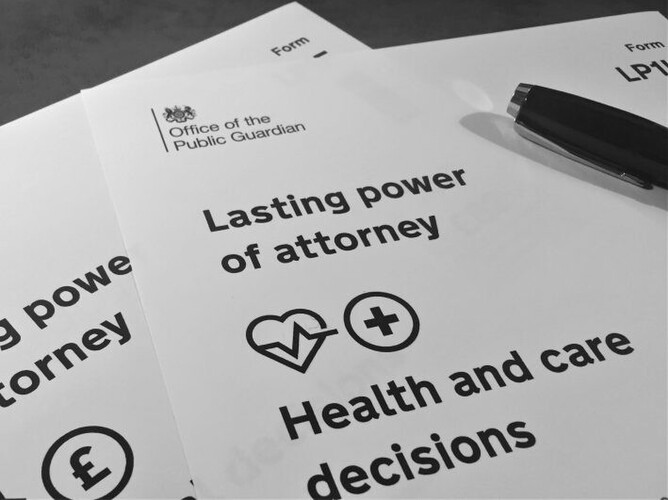Nearly 30,000 Lasting Powers of Attorney (LPA) applications were rejected by the Office of the Public Guardian (OPG) in 2022-23 due to mistakes.
6 in 10 rejected documents were LPAs for property and financial affairs.
An LPA is a legal document where one person (the donor) gives another person the right to make decisions on their behalf on an ongoing basis.
A Lasting Power of Attorney is the most common arrangement in England and Wales, and there are two types:
Property and financial affairs, which allows the attorney to make decisions about bank accounts, money management and property owned by the donor.
Health and welfare, which allows the attorney to make decisions about health care and medical treatment.
According to Quilter, a wealth management company, 29,124 LPAs were rejected due to mistakes in 2022-23, and of these, 17,007 were to do with property and financial affairs.
In the last five years, 127,848 have been rejected in total.
HOW LONG DOES IT TAKE TO REGISTER AN LPA?
The OPG, which is responsible for processing POA applications, said that people should allow up to 20 weeks for it to be registered. However, before the pandemic, the average time frame was around 10 weeks.
The shortest period recorded was 20 days, and this was for highly urgent cases, but the longest case took 983 days as the case had to be referred to the Court of Protection.
So it’s important to make sure your document doesn't contain any mistakes, which would further slow down the process.
5 REASONS YOUR LPA MIGHT BE REJECTED
Here are five common pitfalls stopping an LPA from being registered or working once it is needed.
1. Signing the form in the wrong order
You’ll be told on the form who has to sign it first, then who next. The donor must sign the LPAs first, then the certificate provider, then the attorneys, and thereafter, the person registering the LPA must sign again (either the attorney or the donor).
2. Missing information
If your LPA is missing information it won’t be approved, this also includes the date.
If signatures or details are missing that make it legally invalid, it won’t be registered.
As there are quite a few pages, you should check the numbering and make sure they're all there.
3. Incorrect witnesses
The document has to be signed and witnessed, but parties often use witnesses who aren't allowed to be used.
For example, an attorney can't witness the signature of a donor because there is a conflict of interest in doing so.
4. Not providing full names
You’ll need to provide your full name including middle names, and not just your initial and surname.
You’ll also have to use full addresses and dates of birth.
5. Contradicting requests
The donor might appoint attorneys to make decisions one way, but then include instructions that contradict this.
For example, if you have three attorneys appointed in your LPA, and the LPA says attorneys should act ‘jointly and severally’, you can't then include an instruction in the LPA to say that decisions are made by majority vote, as by acting jointly and severally, all of the Attorneys have equal power to act and make decisions.
UNLESS YOU'RE 100% SURE YOU CAN COMPLETE AN LPA APPLICATION CORRECTLY THEN GET A PROFESSIONAL TO DO IT FOR YOU. IT COULD SAVE YOU BOTH TIME AND MONEY.




